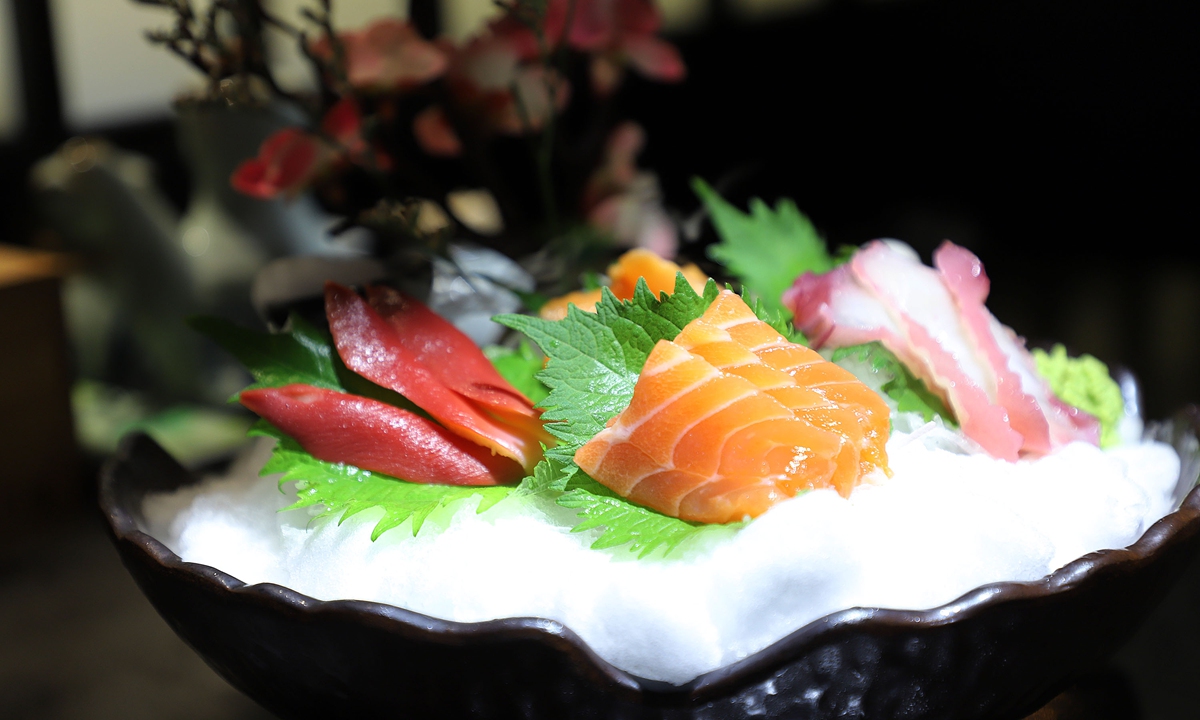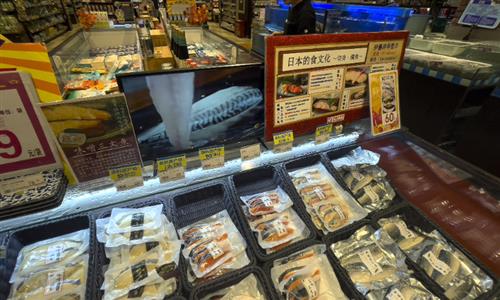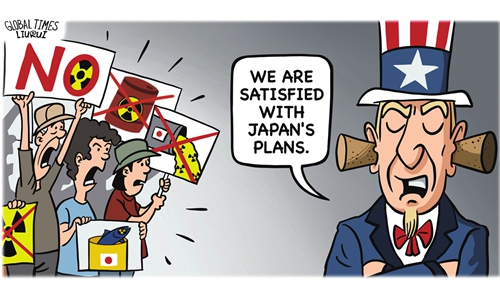Japanese restaurant in Shanghai introduces 'anti-radiation' meal, quickly removes it following public backlash

Sashimi of salmon, scallops and octopus. Photo: from IC.
A Japanese restaurant in Shanghai has introduced and then removed an "anti-radiation" set meal after netizens questioned the dishes' radiation-proof function and criticized the restaurant for false advertising.
The Japanese government's dumping of nuclear-contaminated wastewater into the Pacific Ocean has hit Japanese restaurants in China with some temporarily closing or emphasized their ingredients not imported from Japan. Others considered transitioning their business focus or urgently changing their operating names.
Netizens found that one Japanese restaurant in Shanghai was promoting an "anti-radiation" double combo meal on Dianping, China's leading local lifestyle information and trading platform on Thursday, which consisted of tomatoes, green soybeans, spinach, chicken, and beef at the price of 180 yuan (roughly $25).
On the introduction page for the set meal, the anti-radiation effect of each dish was noted in detail. For example, "trace elements such as iron and magnesium promote metabolism for radiation protection" was noted behind the cold dish chilled tofu. The menu also noted that tomato salad has the function of "effectively reducing radiation-induced skin damage".
According to an employee from the restaurant, all main ingredients were home-grown after Japan started dumping nuclear-contaminated wastewater. Regarding the anti-radiation effects of the meal, the employee said that there was no specific scientific basis outside the head chef's careful selection of produce after gathering information and seeking advice from nutritionists.
But the set meal was quickly removed on Saturday after it became a trending topic on China's Twitter-like social media platform Sina Weibo with more than 90 million views and comments.
Some netizens said the set meal was a clear case of false advertising given its unfounded anti-radiation functions. Others criticized the restaurant for taking advantage of consumer anxiety over the Japanese wastewater dumping plan.
The "anti-radiation" meal, which exaggerated the functions of food and created misleading claims, is false commercial advertising prohibited by China's Anti-Unfair Competition Law, Fu Jian, the director of Henan Zejin Law Firm, told several media outlets.
Fu said that once proven to be false advertising, the responsible parties involved could face legal consequences, including compensating consumers for their losses and paying fines, among other penalties.
Starting from Thursday, China banned the import of aquatic products from Japan in order to prevent any nuclear-contaminated food from entering China. Many Japanese restaurants in China including Sushiro, Yoshinoya, Kinsho Sushi, DaiYuu Sushi said they will replace ingredients imported from Japan with those from other countries and regions.
According to the Shanghai Fisheries Industry Association, bluefin tuna and sea urchin are the most popular and highest-selling Japanese imported ingredients on Chinese dining tables, which are commonly featured in mid-to-high-end Japanese restaurants.
Fresh produce markets RT-Mart and Fresh Hema told media that the primary seafood products they offer are salmon and tuna. Currently, salmon is mainly imported from Norway and Chile, while imports of bluefin tuna from Japan has been suspended two months ago due to safety concerns.



